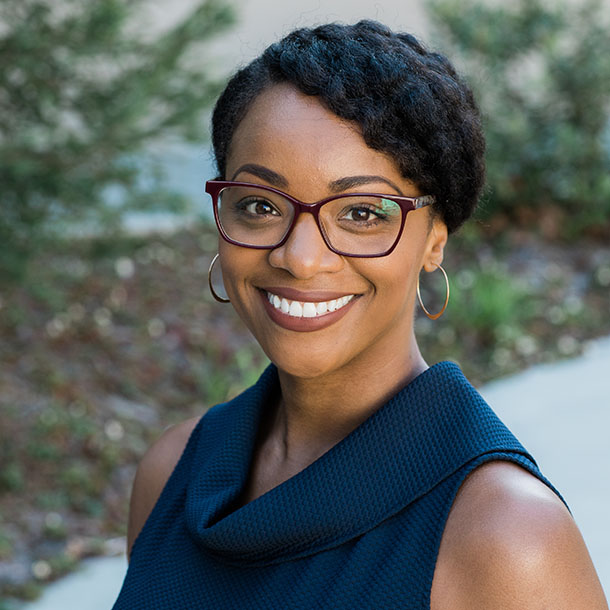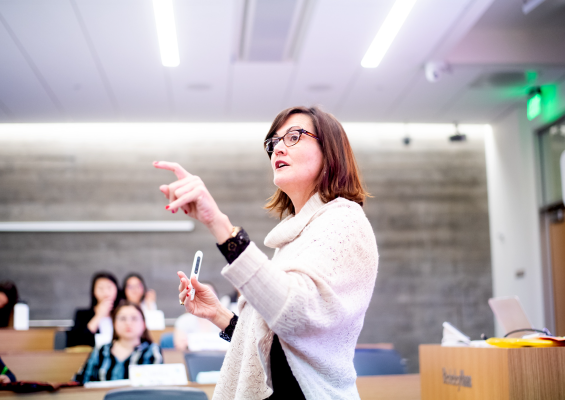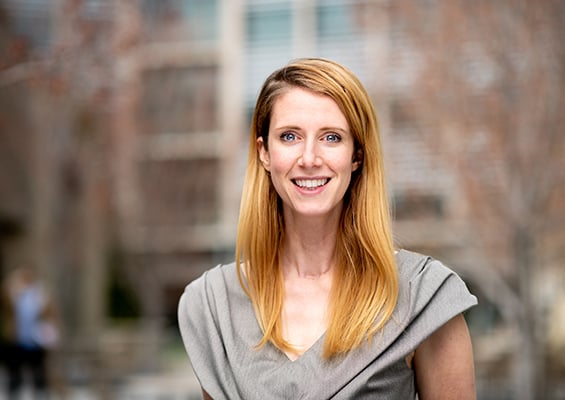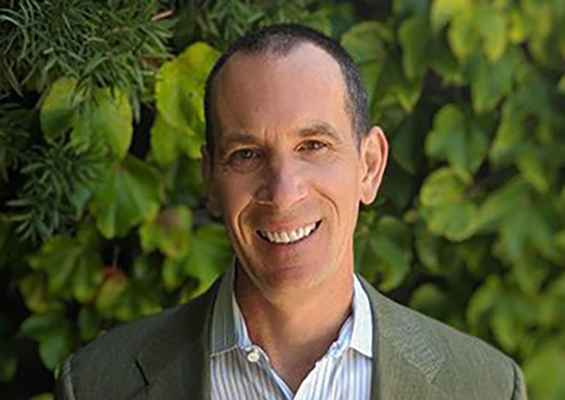Jennifer Cohen, PhD, is both data- and diversity-driven. Her scientific credentials—educated at City College of San Francisco and Howard University, she earned her doctorate in biochemistry, cellular and molecular biology at Johns Hopkins University School of Medicine—are matched only by her passion for creating inclusive communities where “everyone feels welcome to be their best selves.”
Top business schools are beginning to strategize how to become more inclusive, and Jennifer took the lead at Haas in designing and teaching the elective course, Equitable and Inclusive Leadership, open to executive, evening & weekend, and full-time MBA students. She blends her teaching with her career as an equity and inclusion entrepreneur at Inclusive Synergy.
Her scientific work spans malaria prevention in Ethiopia and breast cancer research. At Hopkins, her research focused on the assembly mechanism of coronaviruses, enveloped viruses that develop into Golgi compartments, and was published in the Journal of Virology.
You've had a successful career as a scientist. How do those skills translate to teaching at a business school like Haas?
Contributing toward the social good and building a pool of wisdom together is at the heart of both science research and teaching. In science, you publish your findings, but the magic happens afterward—what will your readers, and the larger community, do with the information? It's the same with teaching. I present a leadership framework based on diversity and inclusion, and my students then figure out how to make use of those skills to make a change in the business world.
I still get 'You're the first black woman scientist/black professor I've met,' and this is another reason translating my science career to teaching at Haas is important: to increase representation in both the STEM (science, technology, engineering and math) and business worlds. I have a passion for doing inclusion work, and I'd like to make enough of an impact that we won't hear this kind of comment anymore.
What are some of the concepts you teach in your Equitable and Inclusive Leadership course?
This summer we tackled the question of how we can leverage our identities to create environments where everyone feels welcomed to be their best selves. The concept is about self-awareness, agency, and using one’s gifts and privileges for the greatest good. My students are predominately white—black, Latinx, differently-abled and LGBTQ students are still underrepresented here at Haas and within leadership roles across industries—so the idea is to explore how important diversity is to all of us, and that we share the responsibility to make it happen. The truth is that harnessing the competitive advantage of a diverse team is a key 21st century skill.
I would love to see Haas be a leader in inclusive academic excellence."
How would you describe your teaching style?
I try to model the inclusivity I seek to teach. Before I started this summer's class I held two student focus groups to help me design the curriculum, so that I could discover how best to communicate what the students said they wanted to learn. I polled my students before and after the class for feedback. Almost half of my students are already in management positions, with more than a decade of work experience, so these are the people who are doing the recruitment for their companies, trying to retain employees, and are either protecting the status quo or taking on more inclusive leadership practices.
I also put together a diverse teaching team, hiring graduate student instructors who are women of color and alumni of Haas.
What is your favorite classroom activity or assignment?
One of my favorite assignments is having students choose an environment where they don't necessarily fit in and spend time there, both observing and being observed. Afterwards they write a reflection paper on the experience and we have a class discussion. The goal of this assignment is to synthesize ‘otherness’ in order to emphasize the importance of belonging. Students gain empathy through this experience and are challenged to be proactive about creating inclusive workspaces.
What do you hope your students will take away from your class?
I want my students to have a sense of ownership and agency around diversity, equity, and inclusion and to be empowered to act. To move beyond ‘random acts of equity’ toward helping develop policies and protocols that truly disrupt marginalization. And I would love to see Haas be a leader in inclusive academic excellence—to see equity and inclusion celebrated in students, faculty, and staff in the same way we might celebrate green initiatives or technological creativity.
The expertise and insight your professors bring helps deepen and enhance your MBA journey. By selecting a top school with top-notch professors, you maximize your experience.
Read more from the Take 5 with a professor series:
- Bill Pearce says most important trait of a successful marketer is empathy
- Maura O'Neill says narrow-mindedness is the enemy of innovation
- Dave Rochlin talks flipping the classroom: MBAs learn by doing
- Clark Kellogg shares how he teaches design thinking, creativity, and innovation
- Jenny Chatman gives three benchmarks of an effective organizational culture
- Lucas Davis shares hardest economic concept for MBA students to grasp
- Kellie McElhaney talks equity fluency, courage, and vulnerability









